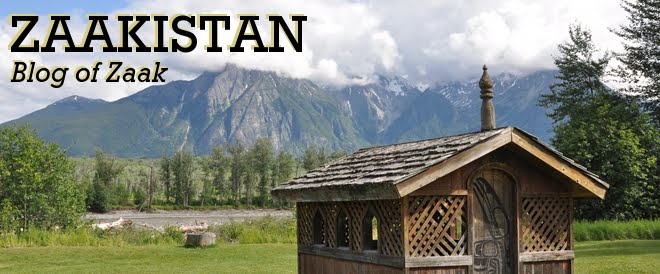I haven't blogged in ages. This, I can't pass up.
I studied political science and government a bit in university when I got my B.A. in history. I understand the Canadian political system and how it works. Because of this, it is so painful for me to listen to Steven Harper speak about the his government's defeat because he is appealing to people's basest and most ignorant fears: "the country will fall apart! the separatists will cause Canada to split! a coalition government is not democratic! members of the opposition parties do not have a right to lead the country! run for your lives!!!" All the political scientists are saying that a coalition is fair and legal, but the PM doesn't think so.
In fact, P.M. Harper is absolutely wrong on all of these counts. Many other parliamentary governments all over the world operate successfully with coalition governments. It's really the first leader who presents a viable majority to the head of state (in our case it's the governor general) who gets to be P.M. Take this information from wikipedia:Countries which often operate with coalition cabinets include: the Nordic countries [Norway, Sweden, Finland, Denmark], the Benelux [Belgium, Netherlands, and Luxembourg] countries, Germany, Ireland, Italy, Japan, Turkey, Israel, Pakistan and India. Switzerland has been ruled by a loose coalition of the four strongest parties in parliament since 1959, called the "Magic Formula".
Jeepers! Those countries must be falling apart!!! We just don't get it. We don't operate the same as our neighbours to the south.
The Bloc Québecois knows that they do not have enough support even within their own province to separate from Canada, so the separation fear is illegitimate.
Too many Canadians are simply not informed and they don't care when it matters (59% voter turnout). We are not a republic. We don't elect a president, we elect local representatives and it's their job to decide who gets to lead, not ours. We didn't elect Kim Campbell to be Prime Minister, she was chosen by party officials to take over for Mulroney when he stepped down (the same way Paul Martin got in after Chretien). So, was it "undemocratic" for Campbell to have been named the first woman Prime Minister without getting a mandate from the people to be the P.M? Nope. It's just how the system works. We either accept it or change it.
By the way, I don't like the current system. I'm pro-proportional representation. It forces parties to work together (cooperation has never been in the vocabulary of Parliamentarians) and gives a much more accurate representation of voters. Check out this snazzy *table I put together:
*I went with a slate of electors by province, not by the whole country as that might compromise local parties like the BQ and local representation. I also had to compensate for the two independent MPs as you can't have a slate of independent electors (you must either join or form a party in order to run).
As you can see, it represents the country much more accurately based on popular vote. Hey, and look! The Greens have 20 seats! The BQ has 20 fewer seats and the "coalition" together with the Greens (assuming they would join the coalition) have enough seats (161) to form a majority - without the support of the Bloc (for those afraid of those scary separatists).
Parties are forced to cooperate with other parties and it would be quite rare to pull off a majority government. Remember 1993? Conservatives got 16% of the popular vote, but only got 2 seats (should have been closer to 48) whereas the Bloc Québequois got 13.5% of the vote and got 54 seats. The Liberals got a huge majority government with only 41% of the vote. This system doesn't fairly represent the people, nor does it encourage parties to work together on policy.
A word on public funding of political parties. I like it. It's $1 per Canadian per election. It ensures that parties that are supported by poorer people are not left in the dust by parties supported by richer people or corporations. Plus, if people realize that they are paying for the election and that their dollar will go to one of the parties, they might as well go out and vote and send your money to the party of your choice!
Finally, a word on Dr. Stéphane Dion, leader of the proposed coalition. Those who do not like him, mock him. They mock his English accent (even though it's better than Harper's French one). They mock his athletic ineptitude. They call him schoolyard names whenever possible. I think this is extremely undemocratic. He is an elected member of Parliament in his riding. Dion was nominated to be the leader of the Liberal party by his peers. There is a reason for the tradition of titling the leaders of Her Majesty's Loyal Opposition "Honourable." He represents a large portion of Canadians. So, please, let's ease up on the mocking. You may disagree with him, but he has earned the right to lead according to the rules and according to those who elected him.
Don't get me started on the whole economic meltdown...




